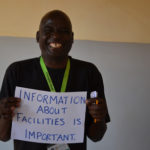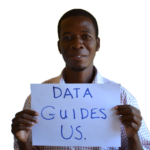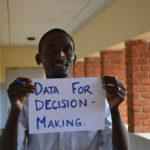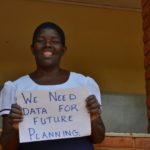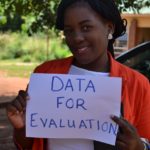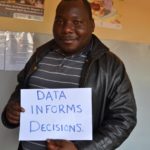The Ministry of Health hosted the 2nd annual mHealth Technical Working Group (TWG) meeting on 17 August 2017. The Ministry of Health initiated the mHealth TWG meeting since 2012 and the Kuunika Project is supporting the government to further strengthen the mHealth TWG’s function for Data Governance.
The formulation of the mHealth TWG was a governmental initiative in order to lead in development and dissemination of best practices in mobile technology in health, commonly known as mobile health or mHealth. It also serves to provide advice, guidance, and to marshal support for implementation and coordination of mHealth initiatives. The mHealth TWG is a forum for information and knowledge sharing on national and international programmes development int mHealth. It maintains an updated list of mobile projects in the health sector including names of organizations and areas of activity. The TWG also acts as a link between the industry, international and local organizations and the Ministry of Health in specific areas of mobile technology development. Through the efforts of the Ministry of Health and development partners, the TWG aims to create an enabling environment to support coordination of members’ research programs, collaborative assessments, and review of on-going projects. Amid the rapid information technology development era, the TWG is tasked to identify important topical issues for discussion at the M&E Technical Working Group meetings and contribute to status reports, technical meetings and topical conferences in the field of mobile IT systems and applications.
Five important presentations were made by the Ministry of Health, Kuunika Project, UNICEF and development partners (Medic Mobile and Living Goods). The important highlights from the meeting were:
- 360 mobile health platform analysis in Malawi: according to the Malawi national health information system architecture standard, the mHealth solutions were defined as the national standard application to be applied at the community level health care system. There are many mobile health solutions in Malawi. While the MoH and mHealth TWG are aware of many solutions, however, there hasn’t been an accurate account of how many mhealth projects are being implemented on the ground, what they are doing, and where they are deployed. This makes decision-making around governance and integration of mobile systems difficult. A national analysis will help get a better understanding of how to move forward. Kuunika Project is going to assist the government to conduct the comprehensive analysis to provide recommendations for policy and standards. The analysis will align with the WHO Digital Health Atlas survey to avoid duplications. The World Health Organization Digital Health Atlas is an integrated global web platform aiming to strengthen the value and impact of digital health investments, improve coordination, and facilitate institutionalization and scale. Malawi is one of the pioneering countries adopted the WHO initiative. The MAPS toolkit will be customized according to the Malawi context and knowledge for the national survey.
- Formulation of Malawi Community Health Information System (CHIS) Taskforce: following the newly launched Malawi Health Sectors Strategic Plan II 2017-2022 <file: attached> and National Community Health Strategy 2017-2022 <file: attached>, the Central Monitoring and Evaluation Division (CMED) and Community Health Section (CHS) of the MoH is forming the CHIS taskforce to facilitate the development of a comprehensive, sustainable, national community health information system in Malawi. The CHIS taskforce includes critical national program representatives and partners such as UNICEF, KUUNIKA, Luke International and others to facilitate and coordinate the development of the community health information system. The draft terms of reference (TOR) of the taskforce was shared during the meeting and inviting interested stakeholders to be members of the taskforce.
The meeting was well attended by the key stakeholders with 47 delegates coming from various development partners. The next meeting is scheduled to be in October 2017.

